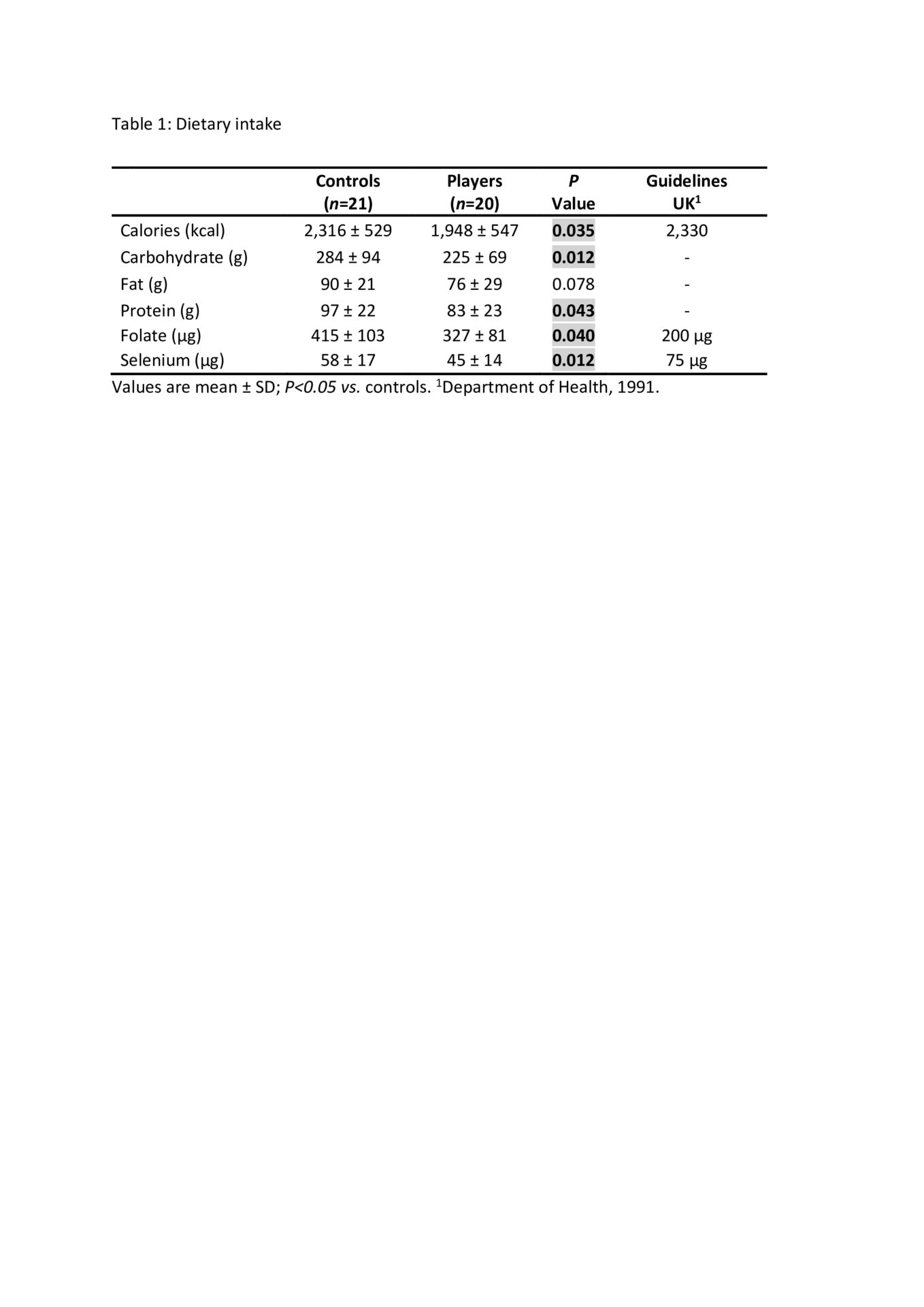Introduction:
Cognitive abilities decline with age [1]. In addition, repeated concussions in retired rugby union players may increase the risk of cognitive decline [2]. Evidence suggests that adequate dietary intake of selenium and folate protects against cognitive decline and dementia [3]. Low intake of both nutrients is associated with increased oxidative stress which may contribute to cognitive decline [4]. However, dietary assessment in retired union rugby players has not been investigated.
Methods:
Twenty retired rugby union players aged 64 ± 5 years having sustained 3 concussions incurred over 22 years were compared to 21 sex, age-, cardiorespiratory fitness- and education-matched controls with no prior participation in contact sports or concussion history. A self-administered validated semi-quantitative food frequency questionnaire (FFQ) was used to estimate typical food intake over the past 12 months. The Montreal Cognitive Assessment (MoCA) was employed to assess cognition. Dietary data were converted into estimated nutrient intakes using a nutritional software package (Q-Builder, Tinuviel Software; Anglesey, UK). Following confirmation of distribution normality (Shapiro Wilks W tests), between-group differences were assessed using independent samples t-tests. Data are expressed as mean ± standard deviation (SD) and significance established at P <0.05.
Results:
Compared to controls, players consumed fewer calories, carbohydrates, protein, folate and selenium (Table 1). Players were characterised by lower MoCA scores than controls (24 ± 3 points vs. 26 ± 2 points, P = 0.020), consistent with mild cognitive impairment (MCI).
Conclusion:
Collectively, these findings demonstrate that retired rugby union players are characterized by inadequate selenium and folate intake. Lower dietary selenium intake has been associated with declined cognitive function and increased risk of dementia [1, 3]. Folate plays a key role in reducing serum homocysteine concentration, the latter a modifiable risk factor for cognitive decline and dementia [5]. Selenium and folate supplementation may confer neuro-prophylactic benefits in retired players with concussion history and attenuate their trajectory towards accelerated brain ageing.

